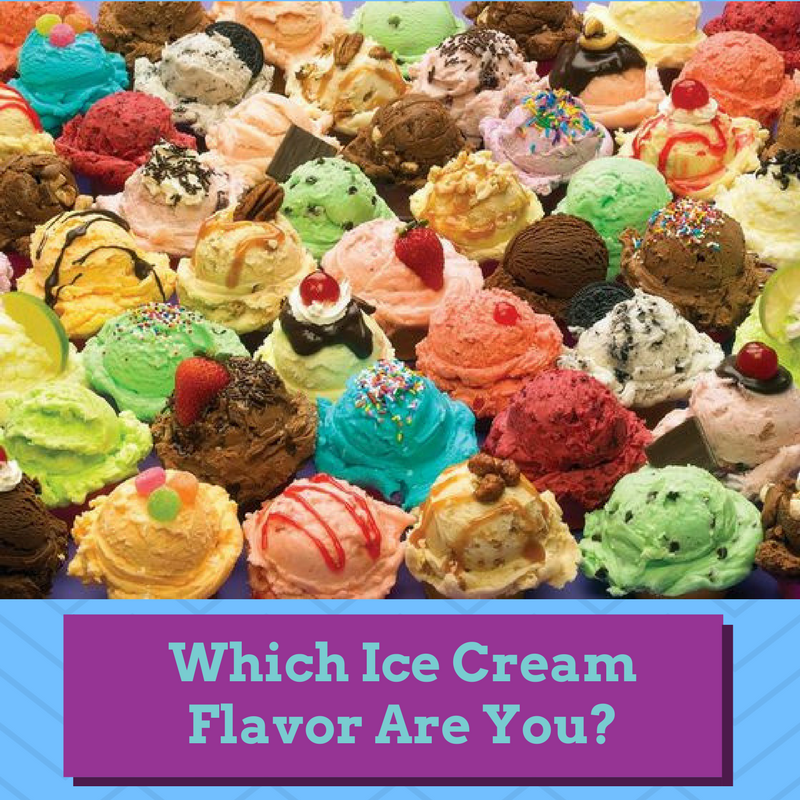
Ice cream, an indulgent treat enjoyed across cultures, transcends mere sustenance to evoke nostalgia, pleasure, and a unique sense of identity. The seemingly innocuous question—“Which ice cream flavor are you?”—illuminates a profound interplay between personal taste and psychological profiling. This article delves into the fascinating correlations between one’s ice cream preference and underlying personality traits, offering insights into how flavors mirror facets of human nature and emotional complexities.
The Allure of Ice Cream
To explore why people are captivated by their ice cream choices, we must first understand the cultural and emotional significance that this frozen dessert holds. From celebratory birthdays to serene moments of solitude, ice cream serves as a multifaceted symbol of comfort and joy. The act of indulging in a cone or a sundae can also transport individuals back to simpler times, conjuring warm memories and allowing them to momentarily escape life’s vicissitudes.
The flavor spectrum—ranging from the comforting familiarity of vanilla to the adventurous intrigue of matcha—is not merely a reflection of culinary preference; it encapsulates an individual’s personality, values, and emotional responses. As such, the nuances behind flavor choices provide a deeper understanding of one’s self. Thus, the quest to discern “Which ice cream flavor are you?” extends beyond the superficial into the realm of self-discovery.
Sweet Delights: Ice Cream Flavors and Personality Traits
Certain ice cream flavors have become emblematic of distinct personalities. This categorization stems from the idea that preferences reveal innate dispositions. For instance, consider the classic vanilla flavor. Often perceived as simple, yet elegant, vanilla lovers may exhibit traits such as loyalty, reliability, and a preference for tradition. They appreciate the familiar, often associating comfort with simplicity.
In contrast, those who gravitate toward chocolate often embody passion and indulgence. Chocolate enthusiasts are typically seen as adventurous and warm-hearted, enjoying life’s little pleasures with fervor. The richness of chocolate mirrors their emotional depth and craving for sensory experiences, suggesting a personality that embraces complexity.
Transitioning to fruity flavors, one finds an intriguing array of personality representations. Strawberry lovers, for instance, are commonly considered to possess a vibrant and optimistic outlook on life. Their penchant for sweet and tangy notes reflects a lively disposition and a zest for new adventures. On the other hand, individuals who favor citrus flavors, such as lemon or lime, may be characterized as energetic and vivacious, often radiating enthusiasm and charisma.
Moving along to the more eccentric flavors, one finds the avant-garde proponents of matcha or lavender ice cream. Those drawn to such unconventional tastes are likely to be imaginative thinkers, valuing uniqueness and creativity. Their willingness to explore diverse flavor realms parallels their approach to life—open, experimental, and unafraid of divergence from the mainstream.
Psychological Underpinnings of Flavor Preferences
The relationship between flavor and personality is rooted in psychological frameworks. According to some studies in behavioral psychology, flavors can evoke specific emotional associations. The brain often links taste sensations with emotional memories, creating subjective experiences that are deeply ingrained in one’s psyche. This phenomenon elucidates the tendency for individuals to gravitate toward certain flavors based on their life experiences and emotional responses.
Moreover, the attachment to specific flavors can also be ideologically representative. A love for artisanal flavors, such as pistachio or honey lavender, indicates a proclivity for authenticity and craftsmanship. Individuals who appreciate these sophisticated flavors typically exhibit traits of discernment, valuing quality and depth over mere novelty. They are often reflective and possess an affinity for cultural exploration, seeking experiences that enrich their understanding of the world.
Flavors as Reflections of Life Stages
Interestingly, one’s flavor preference can also fluctuate with life stages, marked by evolving tastes and changing identities. Childhood favorites, such as chocolate chip cookie dough, often resonate with an unadulterated joy and playfulness. As individuals transition into adolescence or adulthood, their flavor preferences may reflect newfound complexities and personal growth, favoring flavors that symbolize sophistication or introspection, such as espresso or caramel sea salt.
This evolution not only captures personal growth but also mirrors societal trends, as flavors rise and fall in popularity alongside cultural shifts. The current obsession with plant-based and organic ice creams speaks to a greater societal consciousness regarding health and sustainability, drawing in consumers who prioritize ethical considerations alongside flavor choice.
Conclusively Embracing Your Ice Cream Identity
In contemplating one’s flavor identity, it is essential to embrace the intricacies that underlie these preferences. While icy confections often serve as a source of delight, they simultaneously offer an intriguing glimpse into one’s psyche. The myriad flavors available embody a cornucopia of experiences, emotions, and identities, inviting individuals to partake in a journey of self-exploration.
Cultivating an understanding of the flavors that resonate most deeply can prompt meaningful reflections about individual personality traits, life experiences, and even broader societal trends. Thus, as one indulges in the delightful world of ice cream, the question of “Which flavor are you?” becomes not merely a playful inquiry, but a profound invitation to discover and celebrate the nuanced essence of one’s self.
